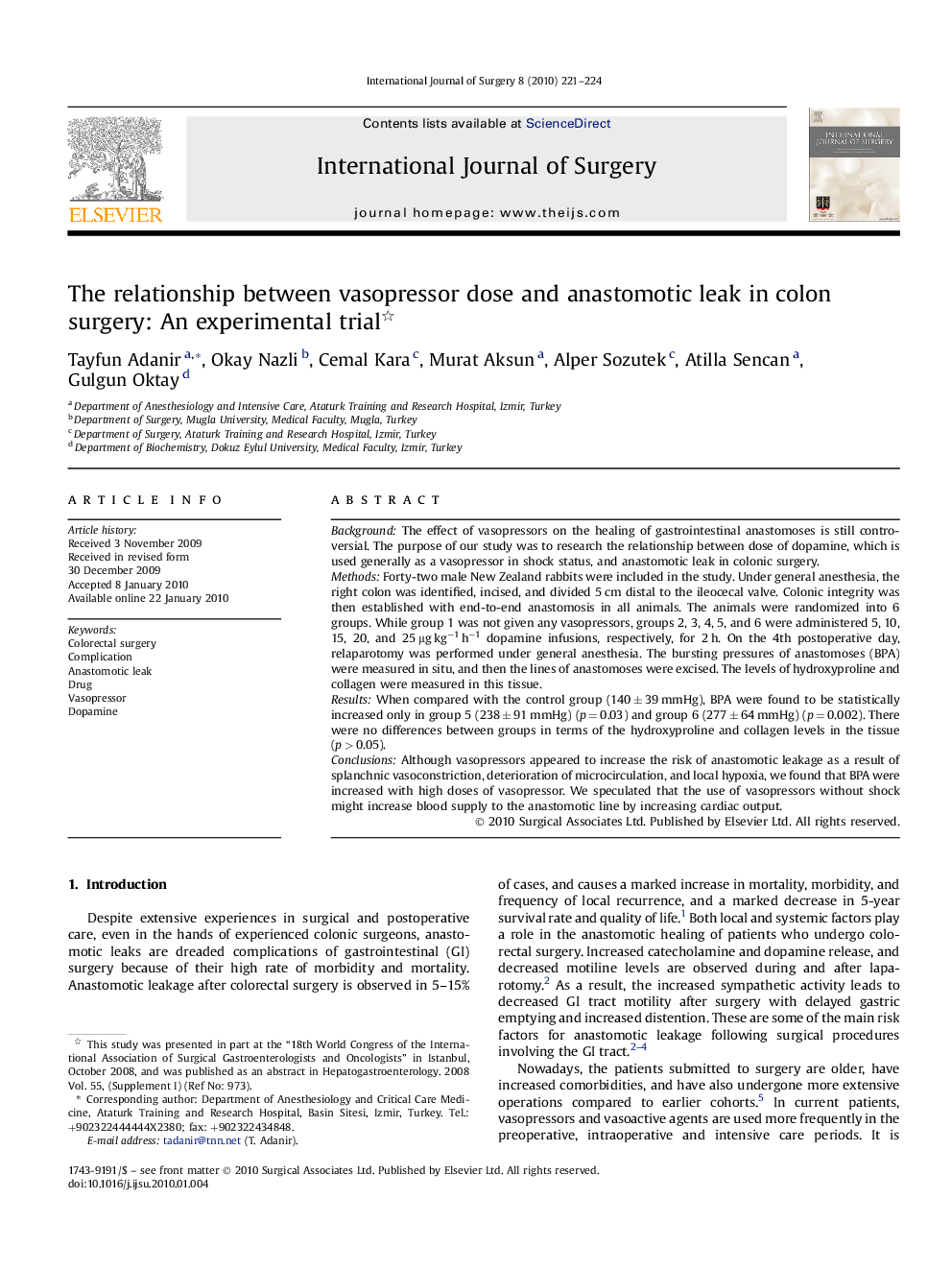| Article ID | Journal | Published Year | Pages | File Type |
|---|---|---|---|---|
| 4287567 | International Journal of Surgery | 2010 | 4 Pages |
BackgroundThe effect of vasopressors on the healing of gastrointestinal anastomoses is still controversial. The purpose of our study was to research the relationship between dose of dopamine, which is used generally as a vasopressor in shock status, and anastomotic leak in colonic surgery.MethodsForty-two male New Zealand rabbits were included in the study. Under general anesthesia, the right colon was identified, incised, and divided 5 cm distal to the ileocecal valve. Colonic integrity was then established with end-to-end anastomosis in all animals. The animals were randomized into 6 groups. While group 1 was not given any vasopressors, groups 2, 3, 4, 5, and 6 were administered 5, 10, 15, 20, and 25 μg kg−1 h−1 dopamine infusions, respectively, for 2 h. On the 4th postoperative day, relaparotomy was performed under general anesthesia. The bursting pressures of anastomoses (BPA) were measured in situ, and then the lines of anastomoses were excised. The levels of hydroxyproline and collagen were measured in this tissue.ResultsWhen compared with the control group (140 ± 39 mmHg), BPA were found to be statistically increased only in group 5 (238 ± 91 mmHg) (p = 0.03) and group 6 (277 ± 64 mmHg) (p = 0.002). There were no differences between groups in terms of the hydroxyproline and collagen levels in the tissue (p > 0.05).ConclusionsAlthough vasopressors appeared to increase the risk of anastomotic leakage as a result of splanchnic vasoconstriction, deterioration of microcirculation, and local hypoxia, we found that BPA were increased with high doses of vasopressor. We speculated that the use of vasopressors without shock might increase blood supply to the anastomotic line by increasing cardiac output.
